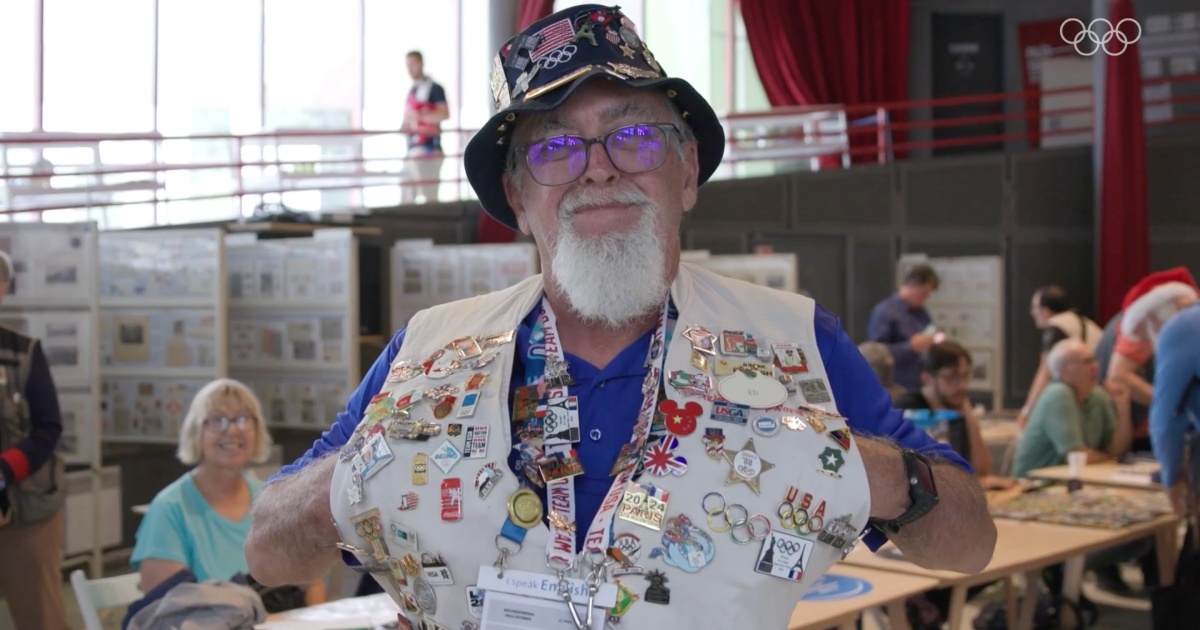Aside from games, Olympics has 'unofficial sport': pin trading
Curious as to why pin trading has been known as the "unofficial sport" of the Olympics?
Levi Jung Ruivivar, who represented the Philippines at the 2024 Paris Olympics, showcased the pins she got during her stay in the French capital for the recently concluded Games.
"If you guys didn't know, the athletes in the Olympic Village trade the pins with each other," the athlete said in an Instagram Reel on Wednesday, Aug. 14. "So just when I'm walking around the Olympic Village, athletes will ask my pins, if I want to trade. And they're honestly pretty cool."
Ruivivar then showed the accessories she got from the athletic teams of Columbia, New Zealand, the Netherlands, the Dominican Republic, Korea, Germany, the Czech Republic, the United States, Portugal, Panama, France, and Great Britain.
She also got a pin from NBC's The Podium Podcast, Stanford University, a Paris hair salon, and sports brand ASICS.
"I don't have nearly as much as a lot of other people," Ruivivar said. "That is my pin collection."
How did the 'unofficial sport' start?
What Ruivivar did is part of the longstanding pin trading tradition at the Olympics. It's even dubbed as the competition's "unofficial sport."
According to the Olympics website, pin badges stretch all the way back to Athens 1896, the very first modern Games, where delegations wore cardboard badges.
Sometime later, cardboard was replaced by sleeker enamel materials, and pins became available.
What started as a way of identifying athletes, judges, and officials soon evolved into a tradition in which athletes, event staff, journalists, and spectators collect and trade pins.
The lure of pins has grown even wider when sponsors joined in to make pins around the Olympic Games.
The Associated Press reported that pin collectors attribute the popularity of pin trading to the 1984 Los Angeles Olympics because that was when many of them started collecting.

The pin collection was halted when the last two Olympics (Tokyo and Beijing) were held without spectators amid the COVID-19 pandemic. It has gained a resurgence during Paris 2024.
“Paris has been very good for pin collecting because after the pandemic, where you could not trade pins so much in Tokyo and Beijing, people are very excited,” Nicholas Wolaver, a pin collector and trader, told AP.
The Olympics website published a video featuring collectors of all ages attending Paris 2024.
One such collector is a man named Ed Schnider of the United States. He can be seen wearing a vest and a bucket hat filled with pins, which he said were acquired from attending 14 different Olympic Games.
The pins' popularity also got social media attention and has been reinforced with Olympians themselves participating.
Tennis player Serena Williams called herself a "first-class pin collector," with her collection dating back to Sydney 2000.
In a video posted by the Olympics on X, Williams said she owns a few Thailand ones she'll "never trade." She was also able to finally "nab the North Korean pin."
American rapper Snoop Dogg, who served as Paris 2024's torchbearer, on Instagram, flexed a pin made after him. It showed Dogg blowing smoke in the shape of the Olympic rings. He gave the pin to American tennis player Coco Gauff.
"This is the best pin that I've ever gotten," Gauff said in the video as she held the Snoop Dogg pin.
To date, pins are also available as non-fungible tokens or NFTs, according to the Olympics website.


